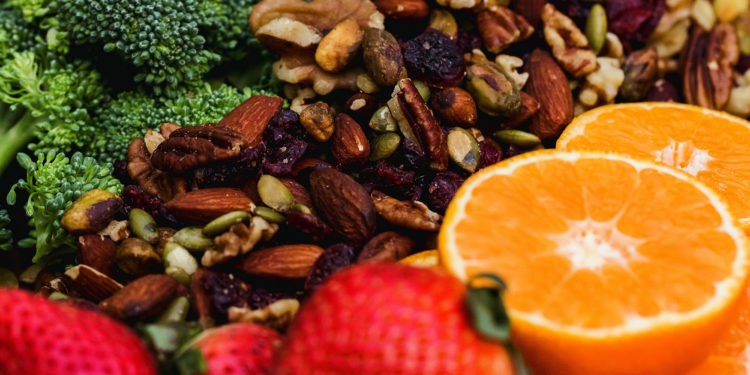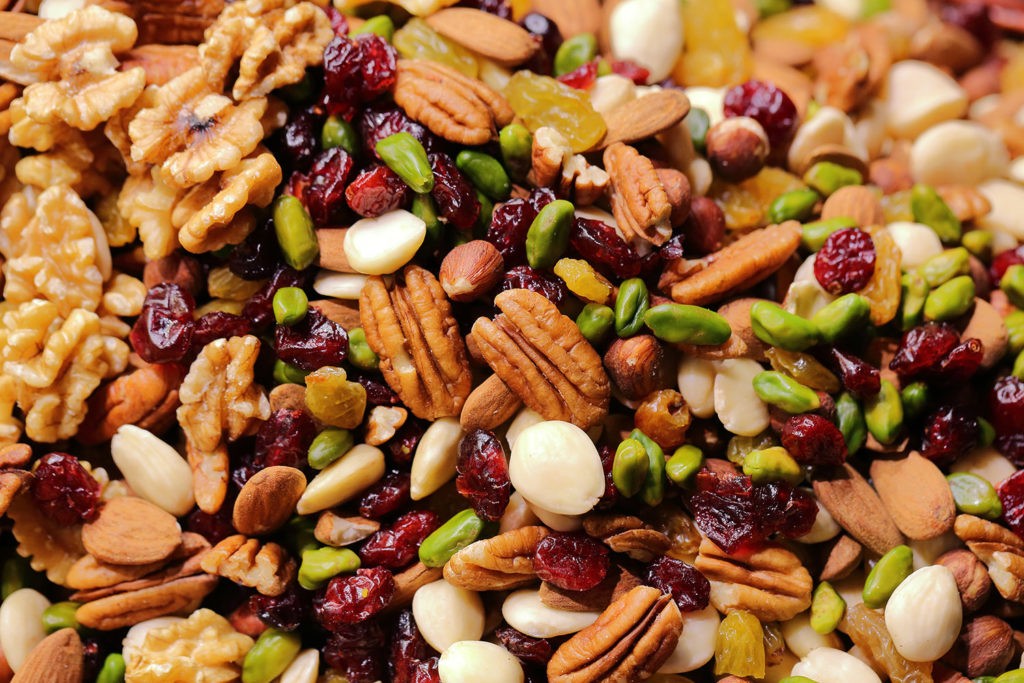Support Your Immune System through Nutrition this Winter

It’s the time of year where we are spending more time indoors, are in closer contact with loved ones, and experience colder temperatures. All of these factors contribute to viruses being more easily spread, which means our immune systems are challenged more so now than in the summer months. Especially with a lingering pandemic in our midst, it is important to prioritize supporting our immune system, and nutrition can be a great tool to do just that! Read on to learn which nutrients are involved in supporting a healthy immune system, and which foods a dietitian recommends to incorporate so you and your family are staying healthy this winter.

Vitamin D
Vitamin D is a fat-soluble vitamin that is naturally found in some foods and is developed in the body after exposure to sunlight. Vitamin D impacts many different cells within the immune system, and therefore can help regulate an immune response in the body. There are studies that have shown an increased intake of Vitamin D can result in less instances of upper respiratory infections and influenza. Vitamin D is found mostly in animal foods, but some plant-based products are fortified with this nutrient as well. To get enough Vitamin D during the winter months try adding some of these foods into your diet:
- Fatty fish such as salmon or tuna
- Eggs
- Mushrooms
- Whole grain products fortified with Vitamin D
- Low-fat milk fortified with Vitamin D
Vitamin C
Vitamin C is a water-soluble vitamin that is not synthesized in the body, so it is essential that individuals get enough of it in the diet. Studies have shown that consuming adequate amounts of vitamin C can help shorten the severity and duration of the common cold and upper respiratory infections. Fruits and vegetables are the best food sources of Vitamin C, so it is crucial to get the recommended 5 cups of fruits and veggies daily. In addition to their Vitamin C content, fruits and veggies are also a great source of fiber which can support a healthy gut. We are learning more in recent years about how important a healthy gut is for immune function, so eating more fruits and veggies is beneficial for the immune system in multiple ways. See below for the fruits and veggies with higher Vitamin C content:
- Bell peppers
- Citrus fruits such as oranges, clementines, grapefruit, lemons
- Green veggies such as broccoli and brussels sprouts
- Strawberries
- Cantaloupe
- Tomatoes
Zinc
Zinc is an essential mineral that is needed for the development and regular functioning of immune system cells called neutrophils and natural killer cells. Both plant and animal-based foods contain Zinc, but most Americans get the majority of this nutrient through seafood, meat, and dairy. See below for some plant and animal sources of this mineral to add to your diet:
- Oysters
- Chickpeas
- Cashews
- Low-fat yogurt
- Pumpkin seeds
- Lobster and crab
- Beef and pork
- Beans
Vitamin E
Last but not least, Vitamin E is a fat-soluble compound that is responsible for antioxidant activities in the body and is also involved in immune function. Vitamin E has been shown to support a healthy immune system by modulating T cell function. According to the National Institutes of Health, supplementation of Vitamin E has been shown to reduce risk of infection, especially in older adults. Vitamin E is found in nuts, seeds, vegetable oils, and leafy greens. First and foremost, aim to get enough Vitamin E through whole foods in the diet and then rely on supplements if needed. See below for some food sources of this important vitamin:
- Sunflower seeds
- Almonds
- Peanuts and peanut butter
- Safflower oil
- Spinach
- Soybean oil
- Broccoli
- Wheat germ

In conclusion, a variety of nutrients are needed for optimal immune function. Research supports that adequate intake of Vitamin D, Vitamin C, Vitamin E, and Zinc can help reduce the severity and duration of illnesses. Many of the foods listed above are also important for overall health, so including them all year round is a good practice. Remember though, nutrition is just one piece of the puzzle! In addition to a well-balanced diet, there are other habits you can practice to support a healthy immune system. Make sure you are also prioritizing getting enough sleep, managing stress, and exercising often in order to have a well-rounded approach for staying healthy this season.
If you are interested in improving your diet and overall health, consider working with a registered dietitian! Ask your physician for a referral or search online for “Dietitians Near Me” to find local providers. Follow Annie Eller, RD LD on Instagram for more general nutrition info, recipes, meal planning tips, and more!
Cheers to a healthy 2022!






